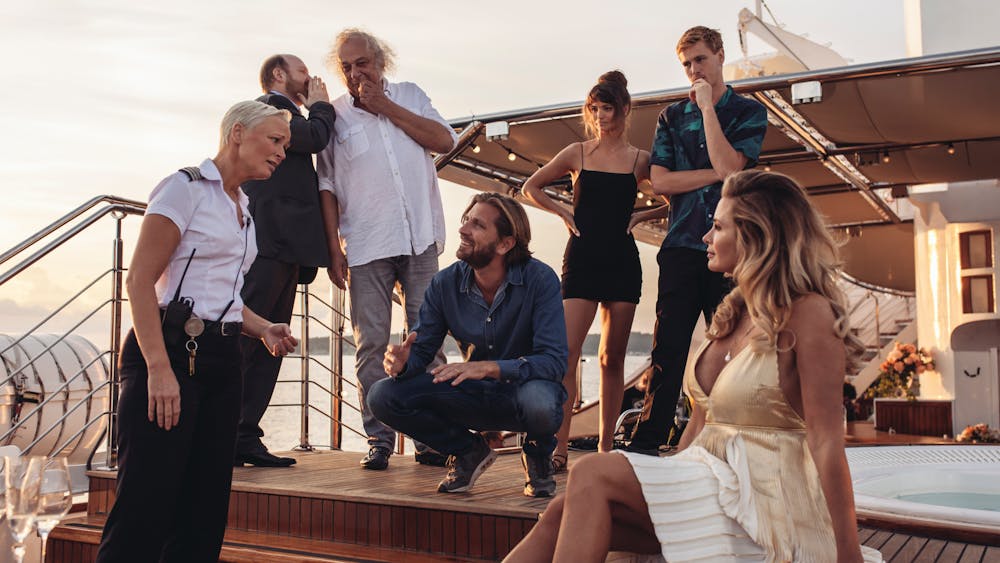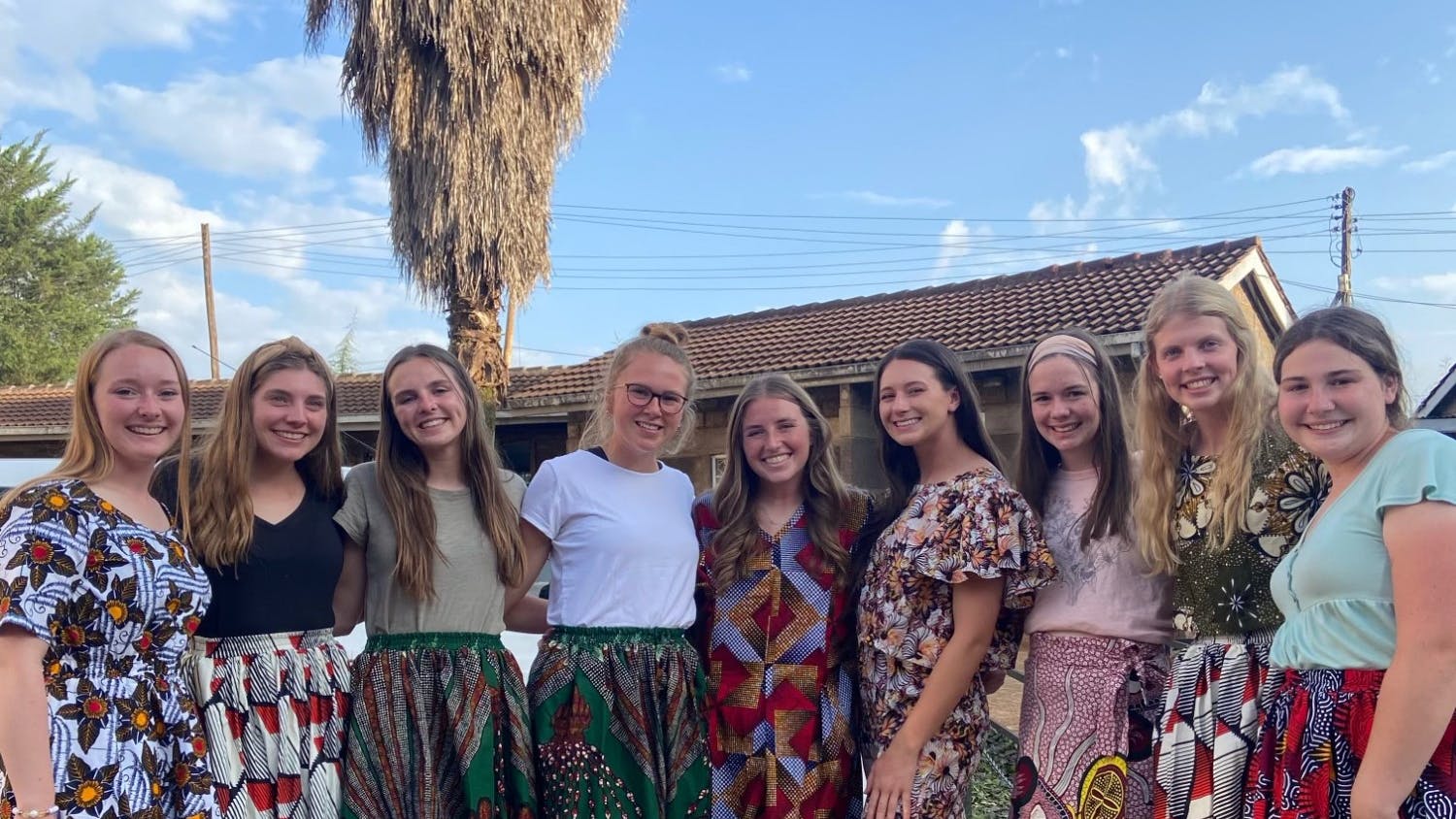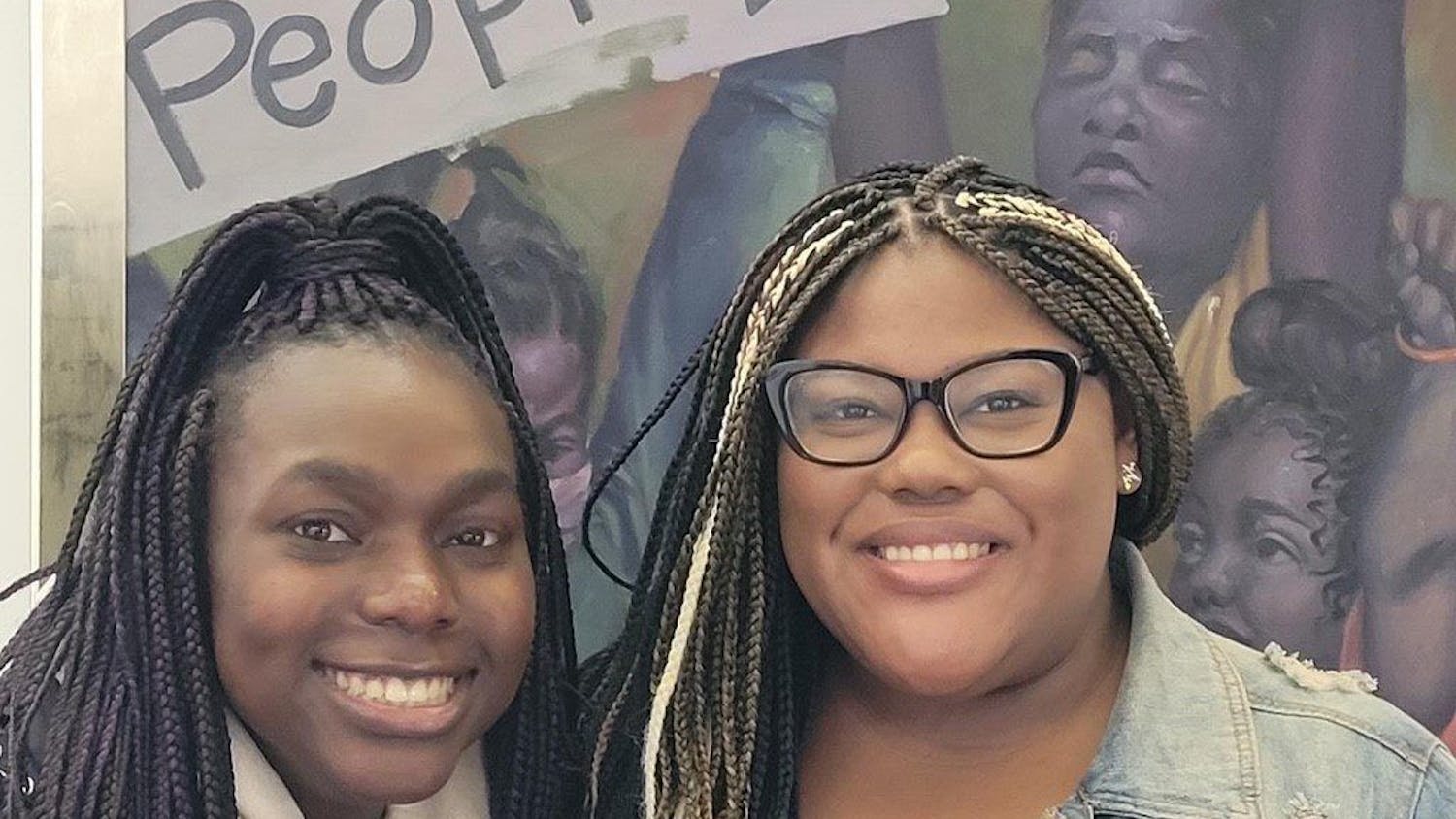In Triangle of Sadness, an acidic, sun-drenched satire from the enduring Swedish provocateur Ruben Östlund, money talks and beauty walks — it dips and spins, twirls and sashays and stares passionately into its own void. Triangle hammers down gleefully on privileged lifestyles thrust into crises, similar to his last film, The Square from 2017, and, like that film, it won the Palme d'Or at Cannes. In comparison to Östlund's 2014 breakthrough, the taut ski-holiday nightmare Force Majeure, Triangle may be his least subtle film — but it's also his most wildly enjoyable.
Harris Dickinson and Charlbi Dean play fashion-model pair Carl and Yaya, whose almost obscene visual symmetry doesn't always translate to their relationship. They make for two almost ideal muses for the director. She is lovely and a little bit harsh, a social Darwinist with a poor tolerance for Carl's continual tsunami of sentiments; he is attractive and needy, a paragon of talkative Gen-Z angst. They've settled their differences sufficiently to last for a while as long as Carl remains obediently silent and shoots all the "casual" bikini photos Yaya needs for her Instagram feed. They accepted a trip on a luxury super-yacht, which is all-expenses-paid because Yaya is also an influencer.
The other guests are mostly older and more accustomed to the benefits of extreme wealth. These include the cheerful Russian Dmitry (Zlatko Burii), who made his millions in fertilizer, the wheelchair-bound Therese (Iris Berben), who is stroke-injured but still alert to everything, and Jorma (Henrik Dorson), a balding, awkward tech wizard. Even a sophisticated couple of British pensioners (Amanda Walker and Oliver Ford Davies) who appear to belong on a box of tea are there; yet, they cheerfully explain that their income comes from explosives (you know, just regular peace-keeping stuff like hand grenades and I.E.D.s).
No request from a guest is too little, and the cheerful team that serves them all, under the watchful eye of a dedicated ice-blonde manager named Paula (Vicki Berlin), is exceedingly obliging. The captain's (Woody arrelson) situation, though? There are numerous booze bottles and outdated socialist literature rattling around in his quarters, and he refuses to dine with his dress uniform on.
Harrelson, once he emerges, looks like he hasn't enjoyed himself this much on screen in a long time, though it's better to know as little as possible about what transpires after the movie's midway point — except that there's a reason little airsick bags were left, winkingly, on every chair in early press screenings. (The story behind the title, too, is too good to spoil, though the explanation for that comes gratifyingly early on.) The tone and setting shift significantly in the film's back end — it's meant to be jarring, and it is — but that narrative swerve also gives Filipina actress Dolly de Leon a chance to shine as Abigail, a middle-aged custodial worker on the ship who may have a better read on Machiavelli and trade economics than anyone.
Dickinson and Dean are consistently entertaining as archetypes whose flaws are genuinely defined; they're messy, mercurial canvases for the director, not just gorgeous blanks.
Östlund's targets — the self-centered follies of the ultra-rich, the foolishness of social media and beauty as currency — are so vast and shiny that the occasional dive feels almost unavoidable. But, Östlund's sense of comedy may occasionally veer toward the obvious or flat-footed. Triangle, however, more often hits than misses, and amid a depressing, frequently unimpressive season of would-be arthouse hits, the film is a genuine trip: perhaps not the funhouse mirror we need for these absurd times, but one we deserve.
IFC showcased a Triangle of Sadness on the 4th of March at Cornwall Auditorium. They will be having an Oscar watch party on the 12th of March at the T.S.O office in the Boren Student Centre at 7:30 PM.





